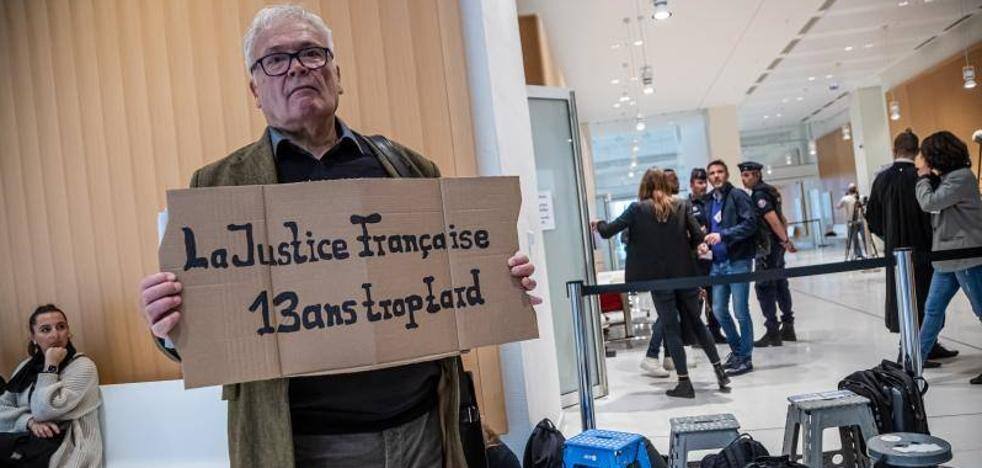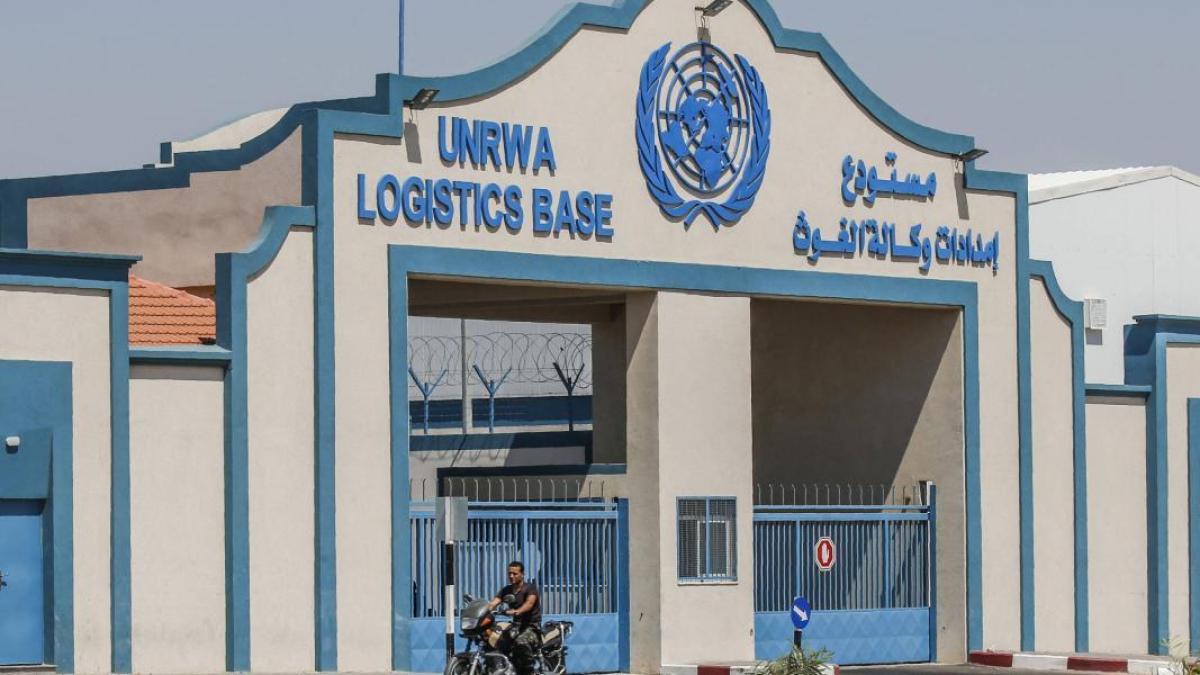Winfried Schmidt, relative of one of the victims, at the entrance of the courts with a sign that reads ‘French Justice 13 years too late’, this Monday in Paris. /
The French Justice judges the airline and the European constructor for involuntary manslaughter when ruling the investigation that the accident was caused by a plane failure
Thirteen years after the accident of Air France flight 447 that cost the lives of 228 people when traveling from Rio de Janeiro to Paris, the time has come for justice. The airline and the European aeronautical constructor Airbus, accused of “involuntary manslaughter”, sit on the defendant’s bench from this Monday until December 8. If found guilty, they could be sentenced to a maximum fine of 225,000 euros, money equivalent to just two minutes of income for Airbus or five minutes of tickets for the airline.
The process was on the verge of not being held. In 2019, the investigating judges ordered the closure of the investigations and the filing of the case, considering that the accident was due to pilot error. This then outraged the relatives of the victims, who appealed to the Court of Appeal. This body ordered in May 2021 that the two companies be tried for the death of 216 passengers of 33 different nationalities and 12 crew members in the accident with the highest number of deaths in the history of the great French airline.
Search for a fair trial
After this thirteen-year legal battle, the relatives of the victims hope that it will be “the trial of Airbus and Air France” and not “that of the pilots,” according to Daniel Lamy, president of the family association Entraide et Solidarité AF447 (Mutual Aid and Solidarity AF447). “We trust in an impartial, exemplary process, so that this does not happen again and that, through this trial, the two defendants put aviation safety at the center of their concerns and not just profitability,” Lamy added in statements to the agency. of AFP press.
The Brazilian Navy collects pieces of the wrecked plane in the Atlantic Ocean, in an image from 2009. /
On June 1, 2009, the plane of flight AF447 broke down in the middle of the Atlantic Ocean and plunged into the sea as a result of ice blocking the device’s speed measurement probes, according to experts. This prevented the pilots from properly controlling the aircraft, which sank in international waters in less than five minutes.
A few days after the incident, the French and Brazilian navies recovered some fifty bodies. But the device was not located until almost two years later, in April 2011, at a depth of 3,900 meters. After the discovery of the plane, another 104 bodies were recovered.
The black boxes confirmed that the pilots, disoriented at night and in the middle of a storm due to the technical failure of the device, could not prevent the device from falling into the sea.
They question the need to remove entire organs from victims of the 2016 Nice attack
The former French anti-terrorist prosecutor, François Molins, addressed this Monday the delicate issue of the removal of organs during the autopsy of several victims of the Nice attack on July 14, 2016 and acknowledged that “not all of them were justified.” “If it had to be repeated, there would have been no systematic extractions,” Molins said before the Paris Court, where the accomplices of the author of the attack are tried.
Following the Nice attack, autopsies were carried out on 14 of the 86 victims, including four children, without their relatives being informed or consenting. In total, 173 organs were removed from 14 victims, at the request of the Paris Prosecutor’s Office. Several victims were buried without their organs. Associations of relatives of victims consider that these removals were not necessary.
#Air #France #Airbus #held #accountable #accident #killed









